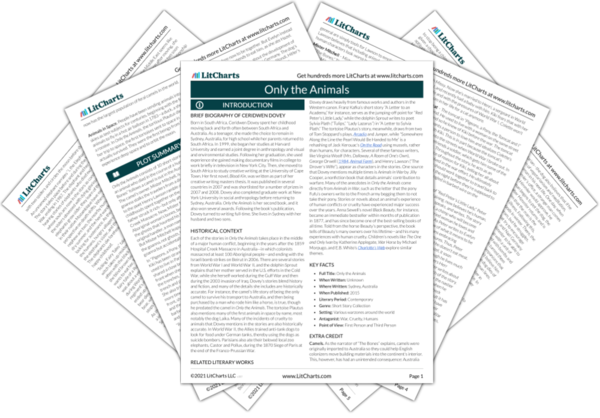It’s significant that the intimate moment of the soldier reading letters from his sweetheart back home reminds Kiki of her owner, Colette. Although the love between the soldier and his sweetheart is romantic, this passage implies that Kiki’s love for Colette runs just as deep. And just as the soldier misses his beloved, Kiki misses Colette too—both now when they’re physically separated (like the soldier, Kiki is experiencing the war firsthand from the battlefield, while her beloved is safe back at home), but also in those moments when Colette was emotionally unavailable and wrapped up in her writing. On another note, Kiki implies that Colette writes frivolous things, but in the thick of World War I, it seem as though nothing will ever be light and innocent again.
